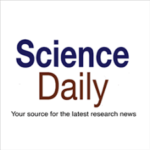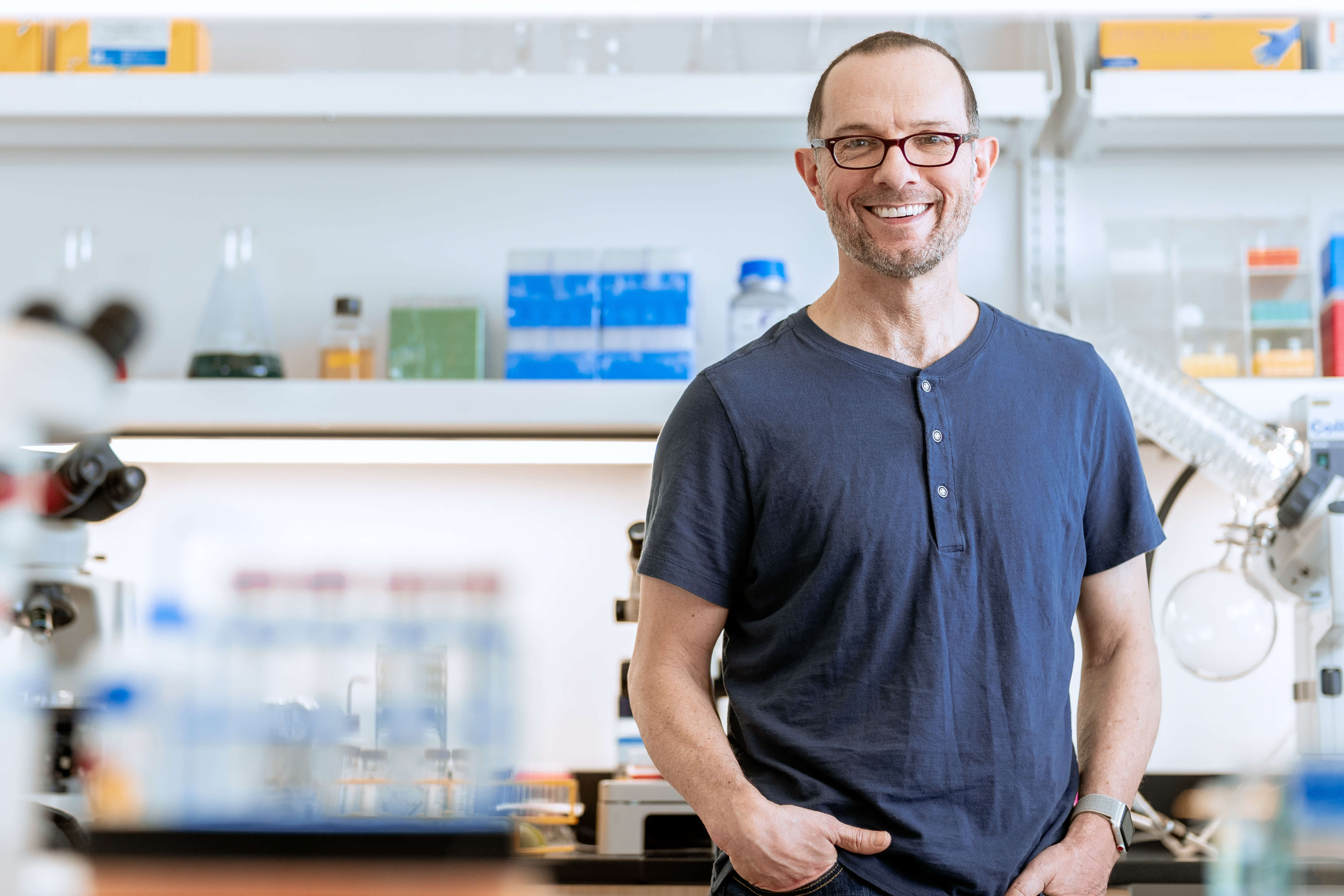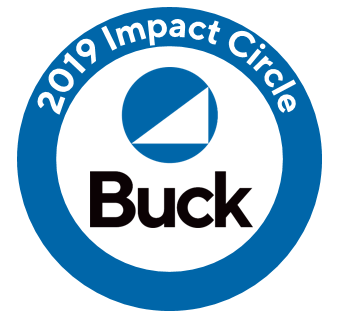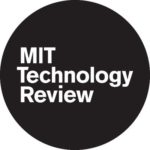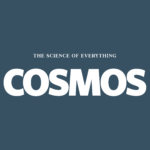MELOV LAB
Lab focus
Why do we age? Despite more than 30 years of research in the genetics of aging and a much longer history interrogating the process more generally, we still don’t know the answer to this basic question. There has been some success in manipulating the lifespan of simple laboratory organisms and, to a lesser extent, mammalian systems such as the laboratory mouse. However, true insight into the mechanisms which modulate longevity elude us at present. Otherwise we would be able to make our favorite model systems with lifespans of a few weeks live for not just a month or two but potentially decades, all while remaining youthful and healthy.
The Melov lab takes a multidisciplinary geroscience approach to better understand the core mechanisms that drive aging. This includes a heavy reliance on multiple model systems, including invertebrate models, mammalian models (the laboratory mouse), human cell lines and tissues, and state-of-the-art genomic technologies that rely on heavy computational methods to better understand how cells and tissues change with age and/or pharmacological intervention.
Why it matters
We must constantly question our own models and data to gain genuine insights into the mechanisms that drive the degenerative changes arising from intrinsic aging processes. A key philosophy of the lab is that it is not enough to enhance healthspan through simple dietary or lifestyle interventions. We argue that such approaches merely fine-tune an organism to survive in its current environment. While worthwhile for generally improving health, such paradigms will do little to uncover the key drivers that limit lifespan. In contrast, we hope to develop novel multidisciplinary approaches in geroscience to develop therapeutics that are effective in reducing or ameliorating the cellular damage arising from endogenous aging processes. Such an approach will pay massive dividends to improve the health and longevity of a rapidly aging world.
Efforts to extend healthspan by delaying the aging process are moving from ‘impossible’ to ‘inevitable.’ The Buck Institute is uniquely positioned to play a pivotal role in this new area of medicine.
Simon Melov, PhD
CENTER DETAILS
Dr. Melov was the third faculty hire at the Buck Institute when it opened its doors in 1999 and currently serves as co-director of the Institute’s Mouse Phenotyping and Single-Cell Biology cores. An Australian, Dr. Melov obtained his bachelor’s degree in human genetics from the University of New South Wales in Sydney, Australia, and then completed his PhD in biochemistry at Imperial College London in the United Kingdom. He carried out postdoctoral studies on the genetics of aging at the University of Colorado, Boulder, and on mitochondrial disease at Emory University in the Department of Molecular Medicine. He also holds adjunct appointments at the Andrus College of Gerontology, University of Southern California, and Dominican University of California in San Rafael.
Dr. Melov is facile in multiple aspects of aging biology, which is now termed geroscience. He has published more than 100 papers and has twice received the Glenn Award for Research in Biological Mechanisms of Aging. He was the first faculty member at the Buck Institute to receive a senior scholarship from the Ellison Medical Foundation. He was one of the founding editors of the highly respected journal Aging Cell and served as the inaugural and founding chair of the Gordon Research Conference on Oxidative Stress and Disease.
Dr. Melov has extensive experience in working with biotech and pharma, having received numerous competitive awards from this sector and accumulated broad experience serving as a consultant. He has also served on more than 30 study sections for the National Institutes of Health.
-
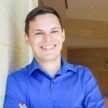 Josef Byrne Buck-USC Graduate Student
Josef Byrne Buck-USC Graduate StudentJosef earned his B.S. in Chemical Engineering from Cornell University in 2018. From 2018 to 2022, he worked as a Scientist in Vaccine Process Development at Merck contributing to the research and development of novel vaccine candidates. Josef entered the Buck-USC Biology of Aging program in 2022 and joined the Melov Lab in 2023. His current research focuses on muscle aging.
JByrne@buckinstitute.org
-
 Sofiya Galkina Staff Scientist
Sofiya Galkina Staff ScientistSofiya Galkina is an MD from Donetsk, Ukraine. Before joining the Buck she worked at Gladstone Institute and UCSF's Department of Experimental Medicine. She was focusing on preclinical HIV studies and antiviral drug research, using a humanized mouse model. Her current role is to assist scientists with all kinds of tools available in the Mouse Phenotyping Core.
SGalkina@buckinstitute.org
-
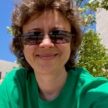 Elena Goncharova Scientist
Elena Goncharova ScientistElena Goncharova completed her Master’s degree in biochemistry at Southern State University, Russia. She worked as a Consulting Scientist at Myer Clinical Research, specializing in innovative preclinical studies for breast cancer therapies. She now investigates senescent cells in her research at the Buck Institute.
EGoncharova@buckinstitute.org
-
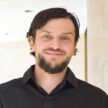 Nicolas Martin, PhD Postdoctoral Fellow
Nicolas Martin, PhD Postdoctoral FellowNicolas Martin is a comparative biologist with a background on lipidomics and mitochondrial metabolism. Nicolas completed his Ph.D. at the University of Wollongong, NSW in 2019. His doctoral research focused on the influence of dietary lipids on lifespan of female honey bees. Over the last few years, Nicolas' research has been targeting to experimentally test mechanisms that could explain the difference in lifespan between short-lived workers and long-lived queens. Workers live for 4-6 weeks while queens can live for years! Throughout his post-doctoral research at the Buck, Nicolas will investigate epigenetic regulations in female honey bees. We will use state of the art technology to explore how female honey bees can regulate the same genome to produce two distinct phenotypes. The honey bee represents a unique system that can provide a conceptual framework for understanding how environmental changes could influence epigenomic modifications and how those modifications affect transcriptional modulation.
NMartin@buckinstitute.org
-
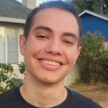 Shane Vistalli-Alvarado Dominican University of California Graduate Student Interns
Shane Vistalli-Alvarado Dominican University of California Graduate Student InternsShane Vistalli-Alvarado completed his B.S in Biology with a concentration in molecular & cellular biology, and minors in both mathematics and chemistry at Sonoma State University in 2024. His undergraduate research focused on categorizing the genetic diversity of insects present across California. His current research focuses on utilizing mouse models to study potential aging interventions in vivo. In his spare time, he enjoys practicing martial arts, riding his motorcycle, and spending time with friends and family.
SVistalli@buckinstitute.org
LAB GALLERY
Selected Publications
- Melov, S. (2016 Apr 29). Geroscience approaches to increase healthspan and slow aging. F1000Res, 5(F1000 Faculty Rev), 785. DOI: 10.12688/f1000research.7583.1. PubMed PMID: 27158475.
- Brand, M. D., Goncalves, R. L., Orr, A. L., Vargas, L., Gerencser, A. A., Borch Jensen, M., Wang, Y. T., Melov, S., Turk, C. N., Matzen, J. T., Dardov, V. J., Petrassi, H. M., Meeusen, S. L., Perevoshchikova, I. V., Jasper, H., Brookes, P. S., Ainscow, E. K. (2016 Oct 11). Suppressors of superoxide-H2O2 production at site IQ of mitochondrial complex I protect against stem cell hyperplasia and ischemia-reperfusion injury. Cell Metab, 24(4), 582–592. DOI: 10.1016/j.cmet.2016.08.012. PubMed PMID: 27667666.
- Fontana, L., Kennedy, B. K., Longo, V. D., Seals, D., Melov, S. (2014 Jul 24). Medical research: Treat ageing. Nature, 511(7510), 405–7. DOI: 10.1038/511405a. PubMed PMID: 25056047.
- Zykovich, A., Hubbard, A., Flynn, J. M., Tarnopolsky, M., Fraga, M. F., Kerksick, C., Ogborn, D., MacNeil, L., Mooney, S. D., Melov, S. (2014 Apr). Genome-wide DNA methylation changes with age in disease-free human skeletal muscle. Aging Cell, 13(2), 360–6. DOI: 10.1111/acel.12180. PubMed PMID: 24304487.
- Flynn, J. M., O’Leary, M. N., Zambataro, C. A., Academia, E. C., Presley, M. P., Garrett, B. J., Zykovich, A., Mooney, S. D., Strong, R., Rosen, C. J., Kapahi, P., Nelson, M. D., Kennedy, B. K., Melov, S. (2013 Oct). Late-life rapamycin treatment reverses age-related heart dysfunction. Aging Cell, 12(5), 851–62. DOI: 10.1111/acel.12109. PubMed PMID: 23734717.
- Kirkwood, T. B., Melov, S. (2011 Sep 27). On the programmed/non-programmed nature of ageing within the life history. Curr Biol, 21(18), R701–7. DOI: 10.1016/j.cub.2011.07.020. PubMed PMID: 21959160.
- Flynn, J. M., Choi, S. W., Day, N. U., Gerencser, A. A., Hubbard, A., Melov, S. (2011 Apr 1). Impaired spare respiratory capacity in cortical synaptosomes from Sod2 null mice. Free Radic Biol Med, 50(7), 866–73. DOI: 10.1016/j.freeradbiomed.2010.12.030. PubMed PMID: 21215798.
IN THE NEWS
